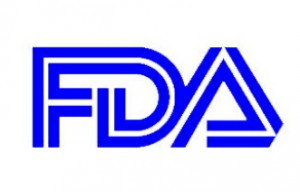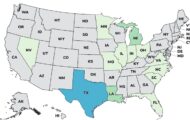Genetically engineered salmon created by AquaBounty Technologies, Inc. has been given market approval by the U.S. Food and Drug Administration (FDA). The agency is seeking comment on labeling guidance documents for companies that make and sell food items containing the genetically engineered product.
 AquaBounty says that because the U.S. currently imports over 95 percent of the Atlantic salmon it consumes, AquAdvantage Salmon offers a new domestic alternative. The salmon, AquAdvantage Salmon, has been genetically enhanced to reach market size in less time than natural salmon. The company says using land-based aquaculture systems to produce the fish is an environmentally friendly way to produce food without damaging the ocean. But the green track record isn’t perfect. Last year, the company was fined by Panamanian officials for environmental violations.
AquaBounty says that because the U.S. currently imports over 95 percent of the Atlantic salmon it consumes, AquAdvantage Salmon offers a new domestic alternative. The salmon, AquAdvantage Salmon, has been genetically enhanced to reach market size in less time than natural salmon. The company says using land-based aquaculture systems to produce the fish is an environmentally friendly way to produce food without damaging the ocean. But the green track record isn’t perfect. Last year, the company was fined by Panamanian officials for environmental violations.
In its announcement today about the approval, the FDA said its “scientists rigorously evaluated extensive data submitted by the manufacturer, AquaBounty Technologies, and other peer-reviewed data, to assess whether AquAdvantage salmon met the criteria for approval established by law; namely, safety and effectiveness. The data demonstrated that the inserted genes remained stable over several generations of fish, that food from the GE salmon is safe to eat by humans and animals, that the genetic engineering is safe for the fish, and the salmon meets the sponsor’s claim about faster growth.”
The FDA’s approval specifies that AquAdvantage Salmon may be raised only in “land-based, contained hatchery tanks in two specific facilities in Canada and Panama. The approval does not allow AquAdvantage Salmon to be bred or raised in the United States.”
The FDA conducted an environmental assessment and determined AquAdvantage Salmon application would not have a significant environmental impact because the fish are sterile and the farms have physical barriers placed in the tanks and in the plumbing that carries water out of the facilities to prevent the escape of eggs and fish.
The FDA will maintain regulatory oversight over the production and facilities, and will conduct inspections to confirm that adequate physical containment measures remain in place. In addition, the Canadian and Panamanian governments will also be conducting inspections of the facilities.
Under the Federal Food, Drug, and Cosmetic Act, the FDA can only require additional labeling of foods derived from GE sources if there is a material difference – such as a different nutritional profile, the agency said. However, because it recognizes that some consumers will want to know if their food contains GE ingredients, the agency is issuing two guidance documents that explain how food companies interested in voluntarily label their products can do so. Beginning Monday, those comments can be posted here.




